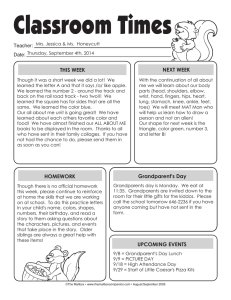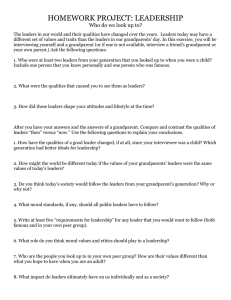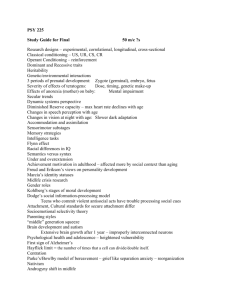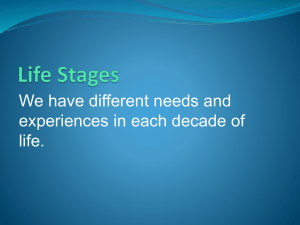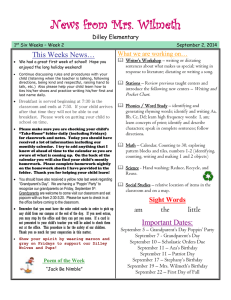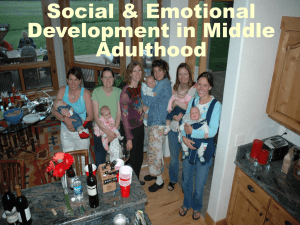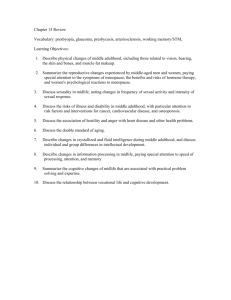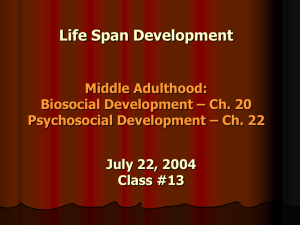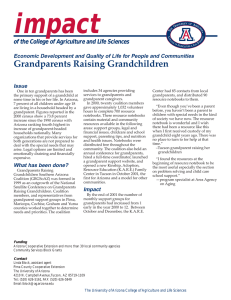Stages of the Family Life Cycle
advertisement
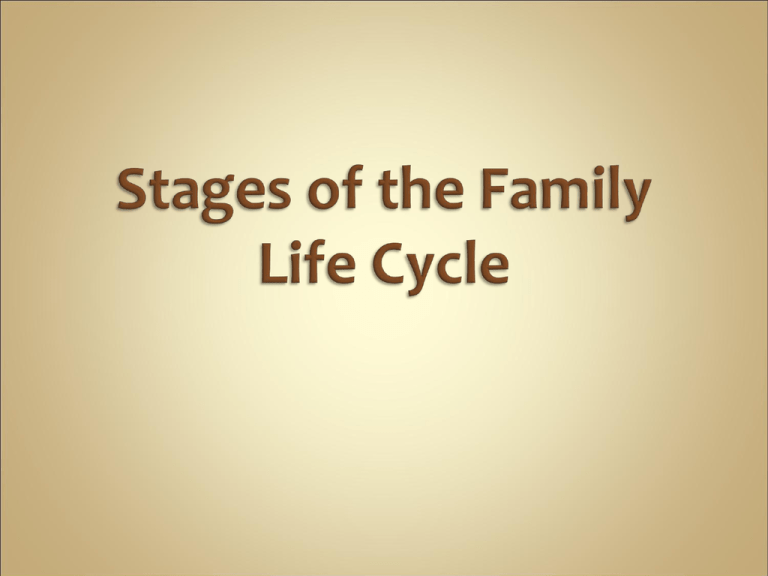
Change from reliance on family to acceptance of emotional and financial responsibility for ourselves Begin to separate emtionally from our family Begin to develop unique qualities and characteristics that define individual identity Develop intimate peer relationships Explore interests and career goals Begin to be responsible for your own health You explore your ability to commit to a new family and a new way of life You form a new family system. – your ideas about family combine with your partners ideas about family The goal is to achieve interdependence The relationship skills you learn in coupling serve as a foundation for other relationships such as parentchild, teacher-student or physician-patient. Introducing a child into your family results in a major change in roles for you and your partner. Each parent has 3 distinct and demanding roles: as an individual, a partner, and a parent. Relationships with extended families may also change, as it opens to include grandparents etc. This can be a difficult time in families. Families need to increase flexibility of family boundaries with teens, yet take care of potential grandparent frailties. Focus on midlife marital and career issues. This is a time when one or more family members may feel some level of depression or other distress. You must make your own health a priority so you can care for both your children and your parents This can be one of the most emotionally difficult stages for parents, as they monitor the exit of their children from the family; this is sometimes called empty nest syndrome. Begins when the first child leaves the nest. There can be the development of adult-to-adult relationships between parents and children Families usually deal with the death of grandparents during this stage Free from the everyday demands of parenting, you may choose to rekindle your own marriage and possibly career goals Health issues related to midlife may begin to occur and can include: High blood pressure Weight problems Arthritis Menopause Osteoporosis Heart disease Depression We reach this stage and either review our lives with acceptance and a sense of accomplishment or with bitterness and regret. We support our children as they launch their own children. We may have to deal with the death of spouses, siblings, and other peers We start to prepare for our own death as well. This stage can also be a great adventure where you are free from the responsibilities of raising your children and can simply enjoy life The quality of your life at this stage depends on how well you adjusted to the changes in the earlier stages. It often also depends on how well you have cared for your own health up to this point. Normal aging will affect your body, resulting in loss of bone density, wrinkles, aches, and pains. The chances of having a mental, or chronic physical illness does increase with age however, aging does not mean you will automatically experience poor health. Becoming a grandparent can bring you great joy without the responsibility of raising a child. You may now have a lot of time on your hands to do things you would like to do such as travel, take up new hobbies or spend time with family.
